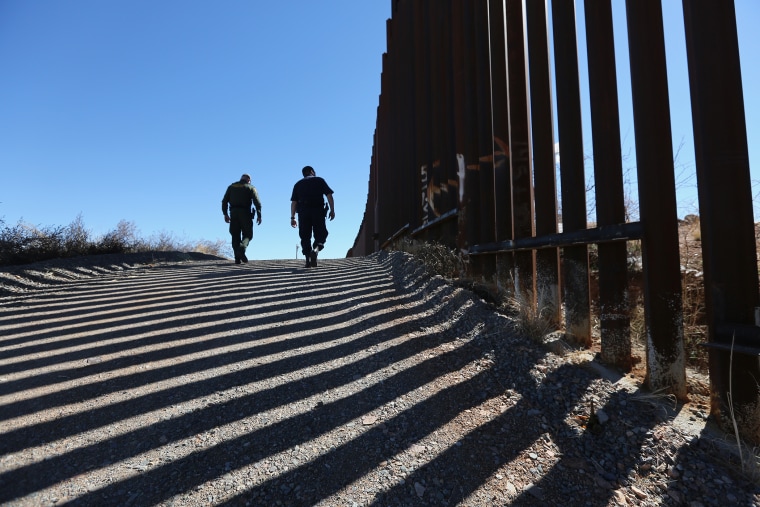Donald Trump's original vision was for Mexico to pay for a giant border wall. When that didn't go well, the president said the wall would pay for the wall. That didn't prove persuasive, either.
This week, the Trump administration announced plans to divert $3.6 billion away from the Pentagon to pay for border barriers, adversely affecting 127 planned construction projects. Which projects? Officials released a public list last night, and now we know several pertinent details -- such as the fact that the children of American military servicemembers will help pay for a wall. Reuters reported:
The Pentagon said on Wednesday it would pull funding from 127 Defense Department projects, including schools and daycare centers for military families, as it diverts $3.6 billion to fund President Donald Trump's wall along the U.S. border with Mexico.Schools for the children of U.S. military members from Kentucky to Germany to Japan will be affected. A daycare center at Joint Base Andrews in Maryland -- the home of Air Force One -- will also have its funds diverted, the Pentagon said.
NBC News ran a report noting that Puerto Rico, a frequent target of Trump criticism, was also poised to receive funding for major projects, but the administration is moving that money to border barriers: "The department said it was holding off on over $400 million in funding for ten construction projects on the island, including a power substation and a National Guard readiness center."
In case that weren't quite enough, the Washington Post reported, "Roughly $770 million of the money will be taken from projects in allied European nations aimed at helping them deter a possible attack from Russia."
I'm not saying there's always a Russia angle to Trump-related news, but it does seem to come up quite a bit.
Retired Army Lt. Gen. Mark Hertling published a tweet last night that read, "To the untrained eye, the 127 defense projects postponed for the border barrier may seem confusing. But as a former commander in Europe, many of these -- elementary schools, training support projects, etc -- are big deals. 'Support the troops?' Not so much."
Senate Minority Leader Chuck Schumer (D-N.Y.) added this morning that the administration's plan to divert funds from the European Defense Initiative comes on the heels of the White House's apparent willingness to delay security aid to Ukraine.
"President Trump is, yet again, putting Vladimir Putin before the security of the American people and our allies," Schumer said. "Cutting the funding used to reinforce our trusted European allies against Russian aggression in order to advance the president's politically-motivated vanity project -- that he promised Mexico would pay for -- is outrageous, wrong, and weakens our national security."
Not long after the Democratic leader's office issued its statement, the Democratic National Committee pulled together examples of Trump diverting funds away from swing-state military-construction projects, including those in Wisconsin, North Carolina, Florida, and Arizona.
Those local economies would benefit from the investments. Now the funds are being redirected to satisfy Trump's political agenda.
If there were a genuine emergency that could only be addressed through rapid construction of steel slats along the border, we could at least have a conversation about the merits of delayed funding for construction projects. But the president's gambit is that much more difficult to defend given the fact that a "wall" isn't necessary and wouldn't produce meaningful results.
This latest gambit is a bad idea wrapped in a bad idea.
